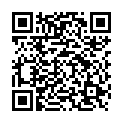|
|
|
| Module code: MFSTM-140 |
|
|
4V (4 hours per week) |
|
6 |
| Semester: 1 |
| Mandatory course: yes |
Language of instruction:
German |
Assessment:
Term paper with presentation (Can be repeated annually)
[updated 20.01.2020]
|
MFSTM-140 (P440-0009) Leisure, Sports, Tourism Management, Master, ASPO 01.04.2017
, semester 1, mandatory course
|
60 class hours (= 45 clock hours) over a 15-week period.
The total student study time is 180 hours (equivalent to 6 ECTS credits).
There are therefore 135 hours available for class preparation and follow-up work and exam preparation.
|
Recommended prerequisites (modules):
None.
|
Recommended as prerequisite for:
MFSTM-W-11 Edutainment
MFSTM-W-111 Sports Management
MFSTM-W-141 Health and Wellness Tourism
MFSTM-W-21 Entrepreneurship
MFSTM-W-25 Event Management
MFSTM-W-31 Recreation and Adventure Management
MFSTM-W-91 Quality Management
MFSTM-W71 Mobility Management
[updated 07.09.2023]
|
Module coordinator:
Prof. Dr. Petra Garnjost |
Lecturer:
Prof. Dr. Petra Garnjost
Prof. Dr. Kerstin Heuwinkel
Dozierende des Studiengangs
[updated 18.06.2025]
|
Learning outcomes:
After successfully completing this module, students will: _
_ be able to explain the specifics of selected national cultures with regard to history, national culture, economic situation and leisure, sports and touristic highlights
_ have deeper insight into the management style and Dos+Don´ts in the everyday business life of selected national cultures
_ be able to research information on selected national cultures independently and evaluate it according to predefined criteria
_ be able to work in a group successfully and independently in a goal-oriented manner and within a specific time limit. This includes the independent distribution of work packages within the group, their preparation by the respective group members and a group presentation. This also includes resolving any conflicts that might arise within the group or escalating them to the lecturers, where necessary.
_ Students will be able to write a paper (where possible) in English, taking into account scientific principles and deliver a presentation (where possible) in English within a specified timeframe.
[updated 20.01.2020]
|
Module content:
_This course deals with complex topics from the field of intercultural and sociocultural skills in the context of leisure, sports and tourism management. Students will work on subtasks individually and/or in groups.
_ Knowledge from the field of cultural research, by, for example, participating in an (inter) national summer academy in cooperation with partner universities.
_ Interdisciplinary course covering the history and culture of a country, as well as its core data on leisure, sports and tourism and the influence of the above on management styles and practices in everyday business life on the basis of current topics (partly supplemented by excursions)
_ Structured discussions, exercises and workshops
_ Structured project work in a team
_ Written composition and presentation of results using modern presentation techniques.
_ Cultural behavior patterns and their impact on (inter-) national leisure, sports and tourism management
_ Intercultural cooperation in mixed teams, conflict resolution in teams and leadership skills
_ Diversity Management
[updated 20.01.2020]
|
Teaching methods/Media:
_ Seminaristic lecture course
_ Case studies (where appropriate, study trip)
_ Group work
_ Structured discussions with fellow students and third parties
_ Presentations and preparation of documentation/papers
[updated 20.01.2020]
|
Recommended or required reading:
_ Depends on the respective topic
_ Current literature lists will be made available to students at the beginning of the semester (exemplary references):
- Briscoe/Schuler, International Human Resource Management, London.
- Dowling/Festing/Engle, International Human Resource Management: managing people in a multinational context, Andover.
- Mendenhall/Oddou, Readings and Cases in IHRM, Cincinnati.
- Hall/Hall, Understanding cultural differences, Boston.
- Hofstede, Culture´s consequences, comparing values, behaviors, institutions, and organizations across nations, Thousand Oaks.
- Scholz/Böhm, Human Resource Management in Europe _Comparative analysis and contextual understanding, Routledge.
_ Current articles in English-language business magazines such as the Harvard Business Review
[updated 20.01.2020]
|


